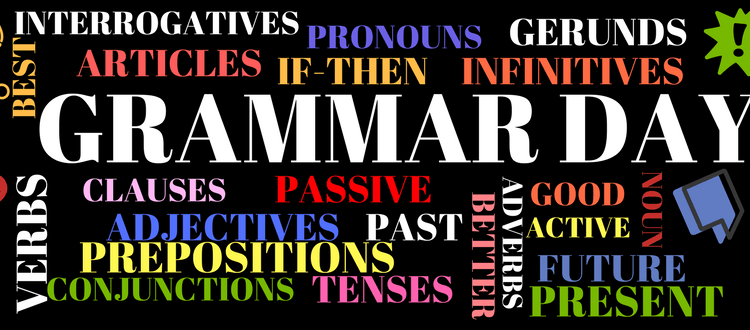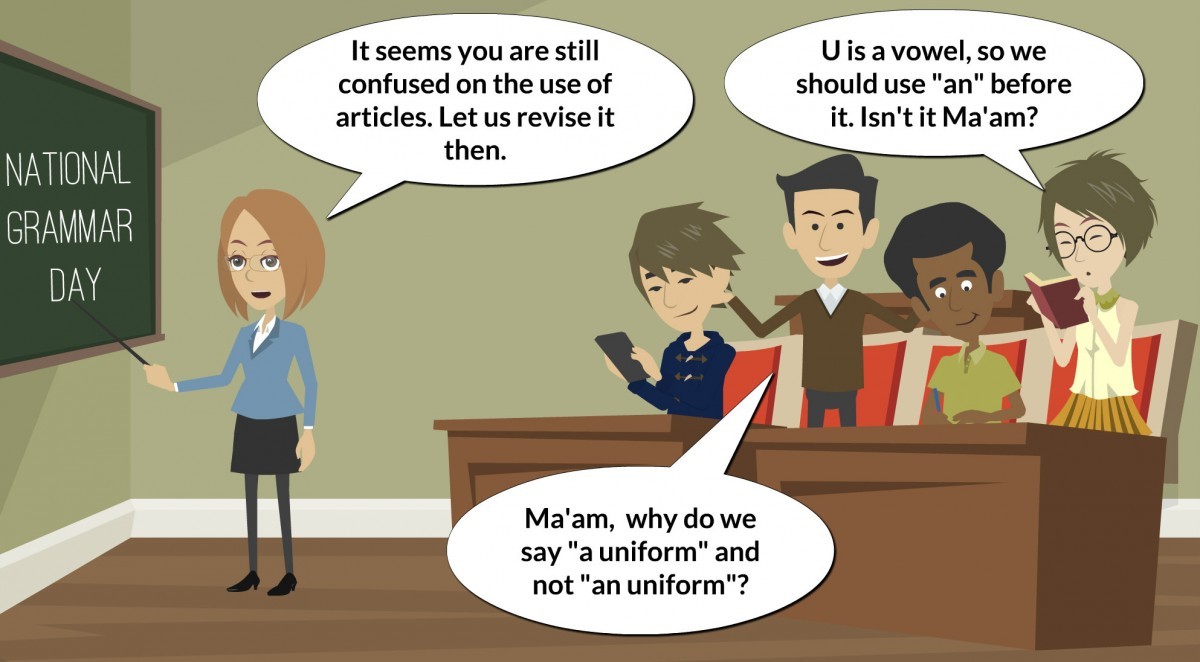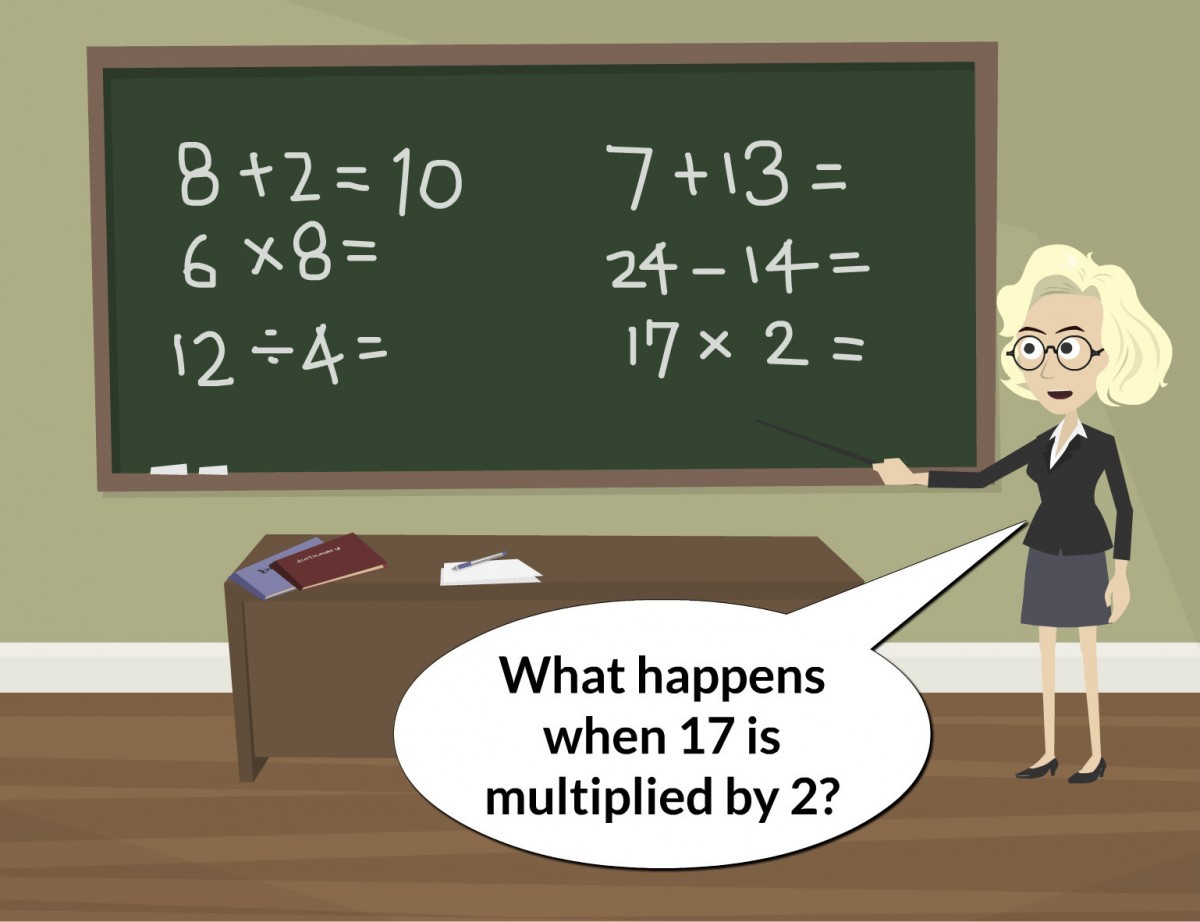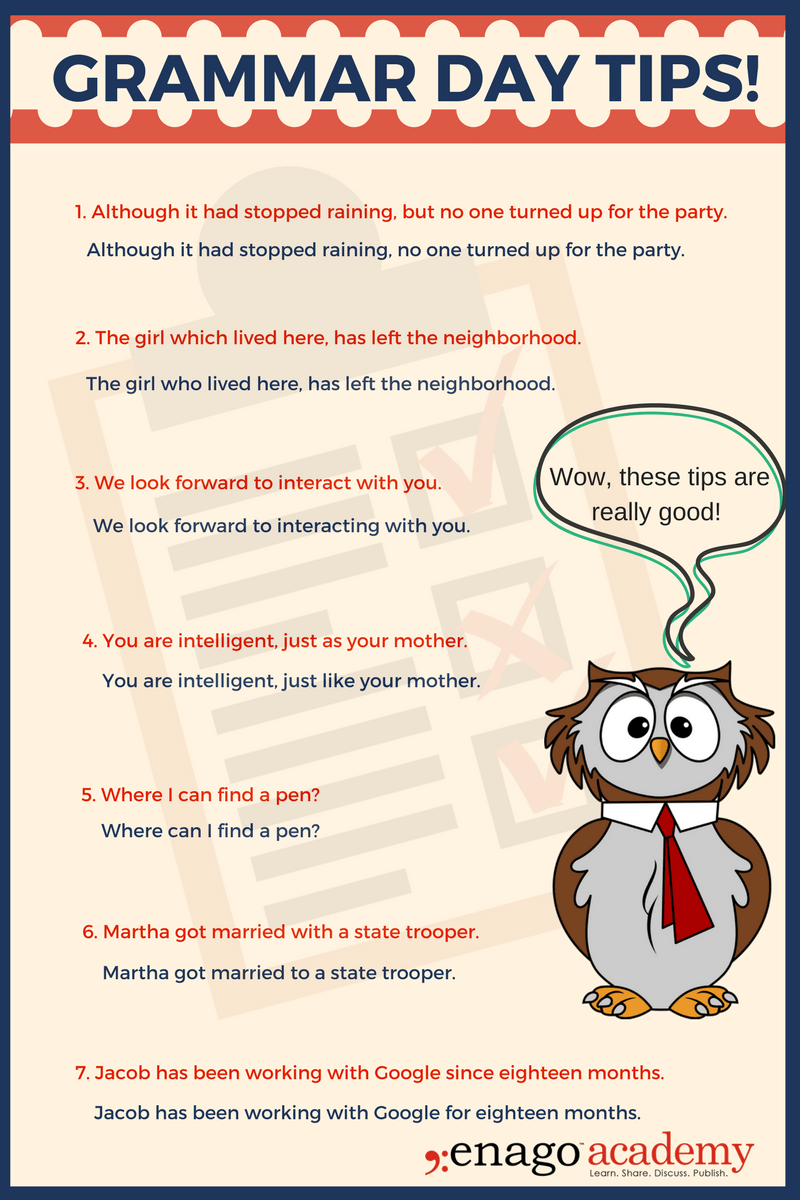Enago Academy Celebrates the U.S. National Grammar Day

Join us in celebrating the U.S. National Grammar Day on March 4, 2018!
Language is used to describe what we wish to express and grammar forms the base of this expression. Right from childhood, we are taught to use language and grammar correctly. However, with time, we tend to forget their value and use both incorrectly. So, this year, let us do our bit to promote good language and grammar practices. A good start could be to using a robust writing tool such as Trinka for your writing needs. It enhances language quality, eliminates grammar errors for effective academic writing, and gives interesting writing tips to help one become adept with language and grammar rules.
First of all, let us quickly review the history of the U.S. National Grammar Day.
The U.S. National Grammar Day
This celebration was initiated by Martha Brockenbrough, the author of Things That Make Us [Sic] and founder of the Society for the Promotion of Good Grammar (SPOGG), in the year 2008. Since then, it has been celebrated all over the U.S. as the National Grammar Day.
Articles and Pronouns can be Tricky!
A author of the manuscript should be an one who actually does the work.
You have used all the articles of English grammar within the same sentence, but is the usage correct?
No, it isn’t. The correct form of the above sentence is:
An author of a manuscript should be the one who actually does the work.
Do you remember the confusion articles brought into our lives in school? Well, then you would be able to relate to these children. We are aware of the articles, namely a, an, and the, and how to use them. But there are few finer details that you may have forgotten. Go through the checklist below to know them:
- Do not use “an” before words like “one,” “uniform,” “European,” “university,” etc. Instead, use “a.” [Hint: Use “an” only before words starting with vowels (a, e, i, o, and u) or vowel sounds.]
- Use “the” only when you want to describe something specific.
- Always use “a” when you want to denote “any.”
Besides articles, you also need to pay close attention to pronouns such as “I,” “yourself’,” “this,” etc. “I” is a personal pronoun, “yourself” is a reflexive pronoun, whereas “this” is a demonstrative pronoun. Keep their usage in mind, so as to know how and when to use them.
What About Person and Voice?
Using the correct person and voice is very essential in English grammar. Even adults seem confused about the usage. While writing, we either use the first, second, or third person. However, when it comes to academic writing, the usage strictly depends on what has been deemed appropriate by the target journal’s author guidelines. Most research is presented in the third person.
Active and passive voice are both used in sentences. But did you know that using passive voice makes sentences longer? Then how do you reduce the word count? Think about it and let us know your answer in the comments section below.
Conditions and Comparisons in Your Writing
Conditional sentences are probably used the most in our daily lives. Let us review this example:
“If” your research is good, “then” it will get published.
There are some rules that must be followed when using the “if-then” conditional statement. There are even other types of conditional sentences such as first, second, third, and mixed. Make sure you know their meaning before using them.
Degree of comparison is another aspect of grammar which is often misunderstood. This is done by using comparatives; adjectives that compare two things by quality. However, there are some adjectives called incomparable adjectives that do not possess a degree. These include “impossible”, “fatal,” etc. Make sure you keep in mind not to compare them. [Hint: It would be a grave mistake to say that yesterday’s accident was less fatal than today’s accident.]
Grammar Day Tips!
On the occasion of Grammar Day, Enago Academy would like to share with you, a list of the most common grammatical errors that you MUST avoid at all costs.
These are just a few of them. Want to go through a few related examples? Try exploring the following resources for common grammatical errors.
Quick Resources
Want to know more on grammar? Here is a list of resources you may want to explore:
- How to Use Articles in Academic Writing: https://www.enago.com/academy/article-usage-in-academic-writing/
- How to Effectively Use Pronouns in Academic Writing: https://www.enago.com/academy/use-of-pronouns-in-academic-writing/
- Incomplete Comparisons: https://www.enago.com/academy/how-to-fix-incomplete-comparisons-or-avoid-them-altogether/
- How to Optimize Sentence Length in Academic Writing: https://www.enago.com/academy/how-to-optimize-sentence-length-in-academic-writing/
We hope you enjoyed reading this post. Once again, we wish you all a Happy Grammar Day!








